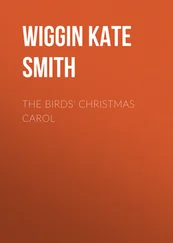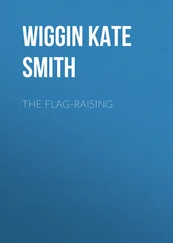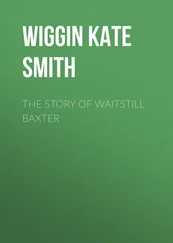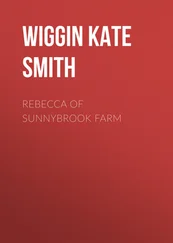Kate Wiggin - The Village Watch-Tower
Здесь есть возможность читать онлайн «Kate Wiggin - The Village Watch-Tower» — ознакомительный отрывок электронной книги совершенно бесплатно, а после прочтения отрывка купить полную версию. В некоторых случаях можно слушать аудио, скачать через торрент в формате fb2 и присутствует краткое содержание. Жанр: foreign_prose, literature_19, foreign_antique, на английском языке. Описание произведения, (предисловие) а так же отзывы посетителей доступны на портале библиотеки ЛибКат.
- Название:The Village Watch-Tower
- Автор:
- Жанр:
- Год:неизвестен
- ISBN:нет данных
- Рейтинг книги:4 / 5. Голосов: 1
-
Избранное:Добавить в избранное
- Отзывы:
-
Ваша оценка:
- 80
- 1
- 2
- 3
- 4
- 5
The Village Watch-Tower: краткое содержание, описание и аннотация
Предлагаем к чтению аннотацию, описание, краткое содержание или предисловие (зависит от того, что написал сам автор книги «The Village Watch-Tower»). Если вы не нашли необходимую информацию о книге — напишите в комментариях, мы постараемся отыскать её.
The Village Watch-Tower — читать онлайн ознакомительный отрывок
Ниже представлен текст книги, разбитый по страницам. Система сохранения места последней прочитанной страницы, позволяет с удобством читать онлайн бесплатно книгу «The Village Watch-Tower», без необходимости каждый раз заново искать на чём Вы остановились. Поставьте закладку, и сможете в любой момент перейти на страницу, на которой закончили чтение.
Интервал:
Закладка:
At last in response to a deafening blow from Rube Hobson’s hard fist, there came the answering note of a weak despairing voice.
“Tom ain’t ter hum,” it said; “Tom’s gone to Bonny Eagle.”
“That’s all right!” guffawed the men; “but you’ve got to go some more, and go a diff’rent way. It ain’t no use fer you to hold back; we’ve got a ladder, and by Jiminy! you go with us this time!”
The ladder was put against the side of the hut, and Pitt Packard climbed up, took his jack-knife, slit the woven door from top to bottom, and turned back the flap.
The men could see the inside of the chamber now. They were humorous persons who could strain a joke to the snapping point, but they felt, at last, that there was nothing especially amusing in the situation. Tom was huddled in a heap on the straw bed in the far corner. The vacant smile had fled from his face, and he looked, for the first time in his life, quite distraught.
“Come along, Tom,” said the sheriff kindly; “we ‘re going to take you where you can sleep in a bed, and have three meals a day.”
“I’d much d’ruth-er walk in the bloom-in’ gy-ar-ding,”
sang Tom quaveringly, as he hid his head in a paroxysm of fear.
“Well, there ain’t no bloomin’ gardings to walk in jest now, so come along and be peaceable.”
“Tom don’ want to go to the poor-farm,” he wailed piteously.
But there was no alternative. They dragged him off the bed and down the ladder as gently as possible; then Rube Hobson held him on the back seat of the wagon, while the sheriff unhitched the horse. As they were on the point of starting, the captive began to wail and struggle more than ever, the burden of his plaint being a wild and tremulous plea for his pail of molasses.
“Dry up, old softy, or I’ll put the buggy robe over your head!” muttered Rube Hobson, who had not had much patience when he started on the trip, and had lost it all by this time.
“By thunder! he shall hev his molasses, if he thinks he wants it!” said Pitt Packard, and he ran up the ladder and brought it down, comforting the shivering creature thus, for he lapsed into a submissive silence that lasted until the unwelcome journey was over.
Tom remained at the poorhouse precisely twelve hours. It did not enter the minds of the authorities that any one so fortunate as to be admitted into that happy haven would decline to stay there. The unwilling guest disappeared early on the morrow of his arrival, and, after some search, they followed him to the old spot. He had climbed into his beloved retreat, and, having learned nothing from experience, had mended the willow door as best he could, and laid him down in peace. They dragged him out again, and this time more impatiently; for it was exasperating to see a man (even if he were a fool) fight against a bed and three meals a day.
The second attempt was little more successful than the first. As a place of residence, the poor-farm did not seem any more desirable or attractive on near acquaintance than it did at long range. Tom remained a week, because he was kept in close confinement; but when they judged that he was weaned from his old home, they loosed his bonds, and—back to the plains he sped, like an arrow shot from the bow, or like a bit of iron leaping to the magnet.
What should be done with him?
Public opinion was divided. Some people declared that the village had done its duty, and if the “dog-goned lunk-head” wanted to starve and freeze, it was his funeral, not theirs. Others thought that the community had no resource but to bear the responsibility of its irresponsible children, however troublesome they might be. There was entire unanimity of view so far as the main issues were concerned. It was agreed that nobody at the poor-farm had leisure to stand guard over Tom night and day, and that the sheriff could not be expected to spend his time forcing him out of his hut on the blueberry plains.
There was but one more expedient to be tried, a very simple and ingenious but radical and comprehensive one, which, in Rube Hobson’s opinion, would strike at the root of the matter.
Tom had fled from captivity for the third time.
He had stolen out at daybreak, and, by an unexpected stroke of fortune, the molasses pail was hanging on a nail by the shed door. The remains of a battered old bushel basket lay on the wood-pile: bottom it had none, nor handles; rotundity of side had long since disappeared, and none but its maker would have known it for a basket. Tom caught it up in his flight, and, seizing the first crooked stick that offered, he slung the dear familiar burden over his shoulder and started off on a jog-trot.
Heaven, how happy he was! It was the rosy dawn of an Indian summer day,—a warm jewel of a day, dropped into the bleak world of yesterday without a hint of beneficent intention; one of those enchanting weather surprises with which Dame Nature reconciles us to her stern New England rule.
The joy that comes of freedom, and the freedom that comes of joy, unbent the old man’s stiffened joints. He renewed his youth at every mile. He ran like a lapwing. When his feet first struck the sandy soil of the plains, he broke into old song of the “bloom-in’ gy-ar-ding” and the “jolly swain,” and in the marvelous mental and spiritual exhilaration born of the supreme moment he almost grasped that impossible last note. His heard could hardly hold its burden of rapture when he caught the well-known gleam of the white birches. He turned into the familiar path, boy’s blood thumping in old man’s veins. The past week had been a dreadful dream. A few steps more and he would be within sight, within touch of home,—home at last! No—what was wrong? He must have gone beyond it, in his reckless haste! Strange that he could have forgotten the beloved spot! Can lover mistake the way to sweetheart’s window? Can child lose the path to mother’s knee?
He turned,—ran hither and thither, like one distraught. A nameless dread flitted through his dull mind, chilling his warm blood, paralyzing the activity of the moment before. At last, with a sob like that of a frightened child who flies from some imagined evil lurking in darkness, he darted back to the white birches and started anew. This time he trusted to blind instinct; his feet knew the path, and, left to themselves, they took him through the tangle of dry bushes straight to his—
It had vanished!
Nothing but ashes remained to mark the spot,—nothing but ashes! And these, ere many days, the autumn winds would scatter, and the leafless branches on which they fell would shake them off lightly, never dreaming that they hid the soul of a home. Nothing but ashes!
Poor Tom o’ the blueb’ry plains!
THE NOONING TREE
The giant elm stood in the centre of the squire’s fair green meadows, and was known to all the country round about as the “Bean ellum.” The other trees had seemingly retired to a respectful distance, as if they were not worthy of closer intimacy; and so it stood alone, king of the meadow, monarch of the village.
Конец ознакомительного фрагмента.
Текст предоставлен ООО «ЛитРес».
Прочитайте эту книгу целиком, на ЛитРес.
Безопасно оплатить книгу можно банковской картой Visa, MasterCard, Maestro, со счета мобильного телефона, с платежного терминала, в салоне МТС или Связной, через PayPal, WebMoney, Яндекс.Деньги, QIWI Кошелек, бонусными картами или другим удобным Вам способом.
Интервал:
Закладка:
Похожие книги на «The Village Watch-Tower»
Представляем Вашему вниманию похожие книги на «The Village Watch-Tower» списком для выбора. Мы отобрали схожую по названию и смыслу литературу в надежде предоставить читателям больше вариантов отыскать новые, интересные, ещё непрочитанные произведения.
Обсуждение, отзывы о книге «The Village Watch-Tower» и просто собственные мнения читателей. Оставьте ваши комментарии, напишите, что Вы думаете о произведении, его смысле или главных героях. Укажите что конкретно понравилось, а что нет, и почему Вы так считаете.












